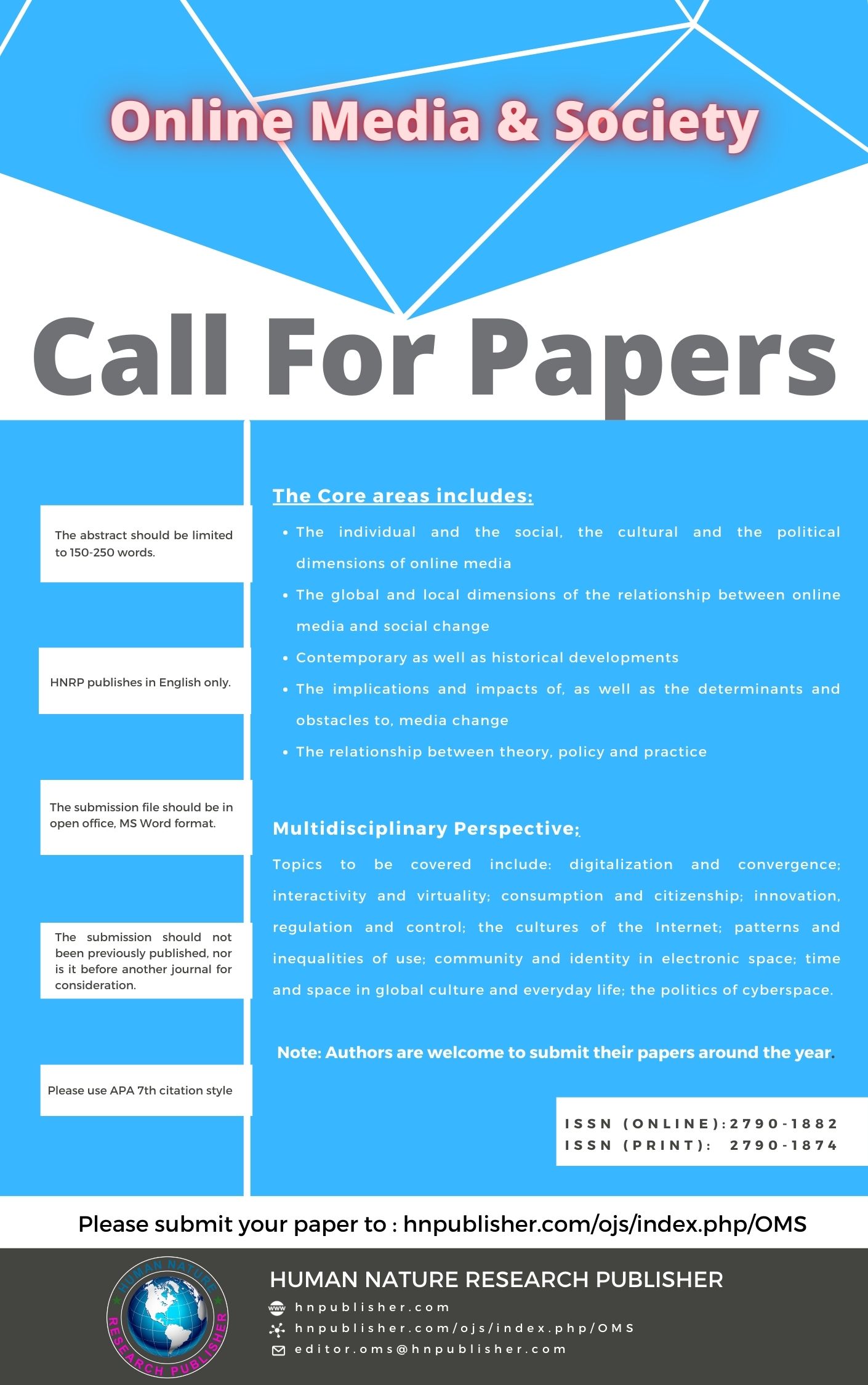Mediating Effect of Academic Amotivation between Smartphone Addiction and Academic Procrastination among University Students
DOI:
https://doi.org/10.71016/oms/vw457236Keywords:
Smartphone Addiction, Academic Procrastination, Academic Motivation, Media Systems Dependency TheoryAbstract
Aim of the Study: Based on the Media System Dependency theory, the study aims to investigates the mediating effect of academic amotivation between smartphone addiction and academic procrastination. The literature shows that new media technologies, especially smartphones have both positive and negative effects on users.
Methodology: In this study researchers used cross-sectional research design and is quantitative study which employed survey method to collect data from students. The sample constituted (N=896) university students from undergraduate and graduate programs. Information was obtained on three rating scales i.e., Problematic Use of Mobile Phone Scale (Merlo et al., 20003), Academic Motivation Scale-College version (Vallerand et al., 1992), and Academic Procrastination Scale-short form (Chakraborty & Chechi, 2019).
Findings: The findings indicate significant positive correlation between smartphone addiction and academic procrastination (r = .56, p < .01), smartphone addiction and academic amotivation (r = .34, p < .01), and academic procrastination and academic amotivation (r = .41, p < .01). The regression model suggests that smartphone addiction positively predicted academic procrastination (model 1: β = 0.57, p < .05; model 2: β = 0.48, p < .05). Academic amotivation also positively predicted academic procrastination (β = 0.26, p < .05). As hypothesized, a partial mediation of academic amotivation was observed as the regression weights for the impact of smartphone addiction on academic procrastination were reduced in model 2 (β = .48) comparing to model 1 (β = .57). Significant gender differences were also observed in the study with male students getting comparatively higher scores on all three variables than female students.
Conclusion: The study concluded that smartphone addiction significantly affects academic performance of the students.
Downloads
Published
Issue
Section
License
Copyright (c) 2022 Dr. Aatif Iftikhar, Dr. Abdul Wahab Liaquat, Dr. Hina Shahid (Author)

This work is licensed under a Creative Commons Attribution-NonCommercial 4.0 International License.








